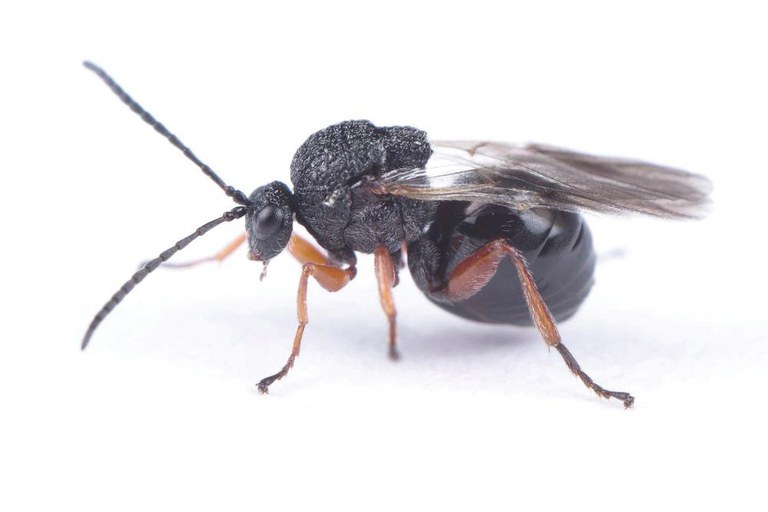Posted: November 30, 2023
Wasps harness power of pitcher plants in first-ever observed defense strategy
Plant growths called "galls" — used to protect the developing larvae of the cynipid wasp — have a pH level below three, making it among the most acidic plant tissues measured to date, according to College of Agricultural Sciences research.
Until this discovery, only citrus fruit tissues were known to be capable of this extreme acidity, explained Antoine Guiguet, an entomologist at Penn State and lead author of a recent study examining the acid levels in galls. He added that the findings are exciting because they may represent a newly detected defense system for the wasps.
In the study, the researchers revealed a potentially novel manipulation of host-plant chemistry in the translucent oak gall, in which the wasp lowered the pH level of the interior of its developing gall to acidity levels used by pitcher plants.
"We know that pH this low is rare in plants," said John Tooker, professor of entomology and co-author of the study. "And the pH that we measured was close to the acidic nature of what's inside a pitcher plant, which is about the same as a lemon. We are hypothesizing that the role of this is defense. Anything that wants to bore in there would be deterred by that acidic environment."
—Adrienne Berard
Features
Fostering Forests
Across the United States, forests face unprecedented threats, and scientists in Penn State's College of Agricultural Sciences are conducting novel and complex research to conserve them.
Buzzing With Purpose
Community scientists work to protect Pennsylvania's wild bees
Conservation Reimagined
Exploring new approaches to cope with a changing climate



